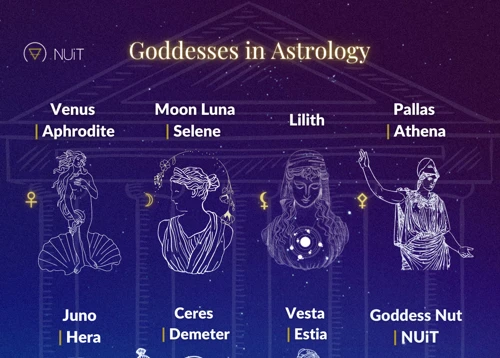Astrology has always fascinated humanity, offering insights into our personalities, relationships, and life paths. Central to this ancient practice are the ruling planets, celestial bodies with significant influence over various aspects of our lives. These ruling planets, each with their own mythology and symbolism, hold the key to unlocking the mysteries of the cosmos. In this article, we will delve into the captivating mythology behind these ruling planets in astrology, exploring the ancient origins and fascinating tales associated with the Sun, Moon, Mercury, Venus, and Mars. Join us on this cosmic journey as we uncover the hidden meanings and profound insights that await within the realm of ruling planets.
Contents
- The Ancient Origins
- 1. The Sun: Ra, the Divine Ruler
- 2. The Moon: Selene, the Serene Goddess
- 3. Mercury: Hermes, the Messenger of the Gods
- 4. Venus: Aphrodite, the Goddess of Love
- 5. Mars: Ares, the God of War
- Conclusion
-
Frequently Asked Questions
- 1. How did ancient civilizations view the stars and planets?
- 2. What is the significance of the Nile flood in Egyptian astrology?
- 3. How did the ancient Greeks contribute to astrology?
- 4. Who were the ruling planets in Roman astrology?
- 5. How does astrology continue to influence modern society?
- 6. Can ruling planets change over time?
- 7. Are ruling planets the only indicators of personality in astrology?
- 8. How does astrology tie into mythology?
- 9. Can ruling planets affect relationships?
- 10. Is astrology a science or a belief system?
- References
-
Frequently Asked Questions
- 1. What is astrology?
- 2. How do ruling planets work in astrology?
- 3. What is the significance of the Sun as a ruling planet?
- 4. Who is Selene in Greek mythology and how does she relate to ruling planets?
- 5. What is the role of Hermes in astrology?
- 6. Who is Aphrodite and how does she relate to ruling planets?
- 7. How does Mars relate to ruling planets?
- 8. How do ruling planets affect relationships?
- 9. Can ruling planets influence our emotions?
- 10. Are ruling planets in astrology based on mythology or scientific evidence?
- References
- Read More
The Ancient Origins
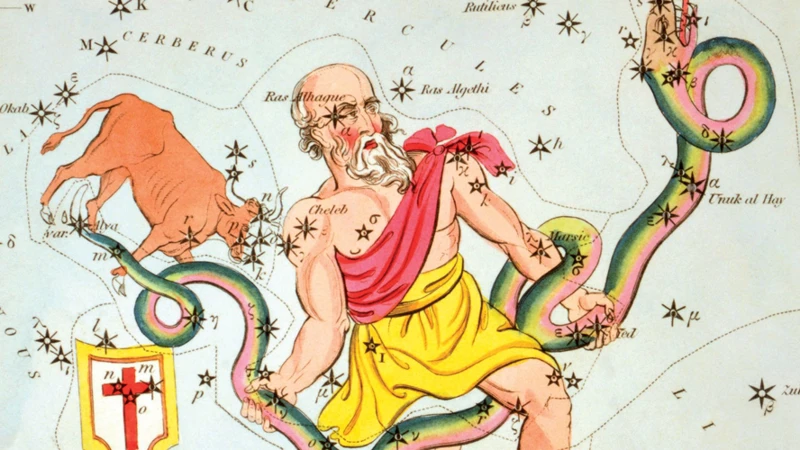
The ancient origins of astrology can be traced back to civilizations that viewed the stars as divine entities and believed in their profound influence on human life. One of the earliest known civilizations to practice astrology was ancient Mesopotamia, where astrological tablets dating back to the 2nd millennium BCE have been discovered. These tablets recorded celestial observations and linked them to events on Earth. The ancient Egyptians also had a deep connection with the stars, associating them with their pantheon of gods and goddesses. Similarly, the ancient Greeks attributed great significance to the stars and planets, believing them to be representations of powerful deities. The Romans, in turn, adopted and adapted Greek astrology, giving the planets Latin names that still resonate in modern astrology. This rich tapestry of ancient cultures and their celestial beliefs laid the foundation for the astrology we practice today.
Egyptian Influence
The Egyptians recognized the celestial bodies as manifestations of their gods and goddesses. They associated specific planets with deities such as Ra, the Sun god, and Thoth, the god of wisdom. The Nile flood, considered a vital event for their civilization, was linked to the annual rising of the star Sirius. This connection between the natural world and the celestial realm formed a basis for astrological interpretations.
Greek Contributions
The ancient Greeks contributed significantly to the development of astrology, recognizing the planets as divine beings with distinct personalities and influences. They associated each planet with a god or goddess, such as Aphrodite for Venus and Ares for Mars. The Greeks also introduced the concept of the zodiac, a circle of twelve constellations, each associated with different personality traits and life events. This allowed them to make connections between heavenly movements and human experiences.
Roman Adaptations
The Romans inherited much of their astrology from the Greeks, adopting their pantheon of gods and goddesses and merging them with their own. For example, the Greek god Zeus became Jupiter in Roman mythology, and the goddess Aphrodite became Venus. The Romans also introduced the concept of ruling planets, assigning specific planets as dominant influences over different zodiac signs. This concept added another layer of complexity to astrological interpretations.
As astrology evolved over the centuries, it incorporated elements from various cultures and civilizations. The diverse and intriguing ancient origins of astrology form the foundation of this mystical practice that continues to captivate and inspire people today.
1. The Sun: Ra, the Divine Ruler
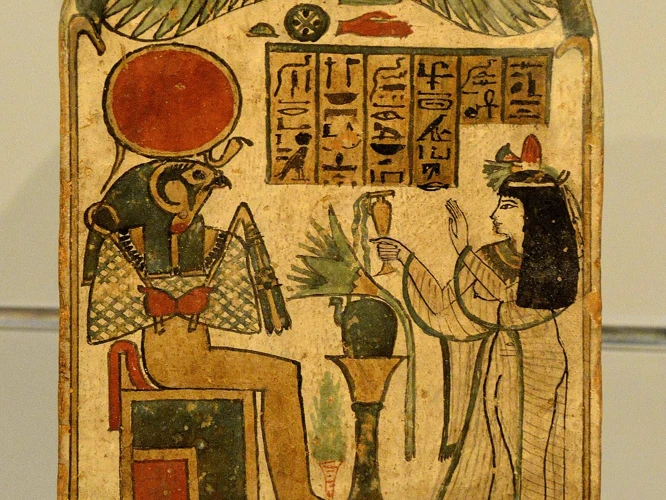
In Egyptian mythology, the Sun was personified by the deity known as Ra. Ra was considered the supreme solar deity, representing light, warmth, and life. He was often depicted with a falcon head and a solar disk adorning his head, symbolizing the Sun’s radiant energy. Ra was believed to be the creator of the world and the ruler of both the gods and humans. His journey across the sky was seen as a daily cycle of birth, death, and rebirth, mirroring the rising and setting of the Sun.
The symbolism associated with the Sun extends beyond its physical presence in the sky. It represents vitality, ego, and individuality. Just as the Sun illuminates the world, it also shines a light on our true selves. It signifies our core essence, our conscious identity, and our drive for self-expression. The Sun’s energy is associated with leadership, willpower, and ambition. Its influence in astrology highlights the importance of finding our authentic selves and radiating our unique inner light.
While the Sun holds a central role in astrology, its placement in a birth chart can vary among individuals. The zodiac sign and house in which the Sun is located provide further insight into how these solar energies manifest. Understanding the mythology behind the Sun helps us grasp its profound significance in shaping our lives and understanding our true path in the world.
1.1 The Egyptian God of Light
Hailed as the “divine ruler” and the symbol of light, Ra holds a prominent place in Egyptian mythology as the god of the Sun. Ra was believed to be the creator of all life, and the Sun itself was considered his physical manifestation. In Egyptian cosmology, the Sun was crucial for sustaining life on Earth, providing warmth, light, and fertility. Ra was often depicted as a man with the head of a falcon, symbolizing his soaring power in the heavens. His journey across the sky, from sunrise to sunset, was seen as a daily cycle of birth, death, and rebirth, mirroring the phases of human existence.
The importance of Ra in Egyptian astrology cannot be overstated. His association with the Sun imbued those born under its influence with qualities like leadership, confidence, and a strong sense of self. The Sun, as a ruling planet, influenced matters of identity, ego, and the quest for personal power. Individuals aligned with Ra were believed to possess a vital life force that radiated brightly, attracting attention and recognition. They often assumed roles of authority and were driven by a desire to make a positive impact on the world.
In the realm of astrology, the Sun represents the core essence of a person’s character and the driving force behind their ambitions. It signifies vitality, creativity, and the ability to shine in the world. Those born under the Sun’s influence are said to possess a natural charisma and a magnetic personality that draws others to them. They strive for success and are often motivated by a deep desire to leave a lasting legacy.
While the Sun’s association with Ra is rooted in ancient Egyptian mythology, its significance in astrology has transcended cultural boundaries. The warmth and radiance of the Sun continue to inspire and guide people as they navigate their own paths in life, seeking to embrace their inner light and fulfill their destinies.
1.2 The Symbolism of Solar Power
The Sun, as the ruling planet, holds immense symbolic power in astrology. It represents vitality, leadership, and self-expression. In many ancient cultures, the Sun was seen as the divine ruler, embodying masculine energy and radiating warmth and light. The symbolism of solar power can be seen in various aspects of human life and mythologies.
In Egyptian mythology, the Sun was personified as Ra, the god of light and ruler of the heavens. Ra was considered the creator and sustainer of life, and his daily journey across the sky represented the cycle of birth, death, and rebirth. The Sun’s association with life-giving energy and abundance is reflected in its astrological significance as a symbol of personal power and confidence.
The solar symbolism extends further to the concept of the solar plexus chakra, which is associated with personal power and self-esteem. This chakra, located in the abdomen, is believed to be the center of our willpower and confidence. When this chakra is balanced and aligned, we feel a sense of empowerment and assertiveness. The Sun’s influence in astrology aligns with this notion, as it represents our core essence and the expression of our true selves.
In astrology, the Sun also represents our ego, identity, and life purpose. It reflects our deepest desires and drives, and sheds light on the path we must take to fulfill our potential. Just as the Sun’s rays illuminate the world, our inner Sun illuminates our unique gifts and talents.
The concept of the Sun as the ruler can be seen in Tarot card imagery. The Sun card represents positivity, success, and vitality. It depicts a radiant Sun shining brightly in the sky, symbolizing a time of joy, optimism, and personal growth.
The symbolism of solar power encapsulates the essence of the Sun as a ruling planet in astrology. It embodies qualities of strength, leadership, and the realization of our true selves. By understanding and harnessing the power of the Sun’s energy, we can unlock our full potential and bask in the warmth of our own inner light.
2. The Moon: Selene, the Serene Goddess
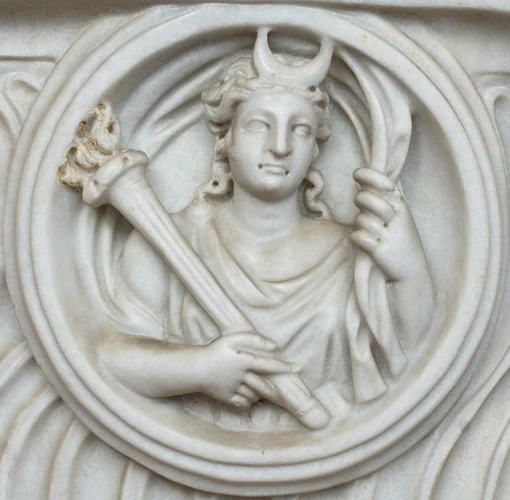
The Moon, known as “Selene” in Greek mythology, holds a significant place in astrology. Selene was portrayed as a serene and radiant goddess, with her illuminating presence captivating both mortals and gods alike. Here, we explore the fascinating mythology and influence of the Moon in astrology.
The Greek Goddess of the Moon
In Greek mythology, Selene was considered the personification of the Moon. She was revered as a beautiful and ethereal goddess, often depicted with a radiant crown and riding a silver chariot across the night sky. Selene was believed to be the daughter of Hyperion, the Titan of light, and sister to Helios, the Sun god, and Eos, the goddess of dawn. According to ancient Greek beliefs, Selene had the power to control the ebb and flow of the tides and could shine her gentle light on Earth during the night.
The Lunar Influence on Emotions
In astrology, the Moon symbolizes emotions, intuition, and the unconscious mind. Its influence is often associated with our innermost feelings and the way we navigate our emotional landscape. Just as the Moon’s light waxes and wanes, our emotions fluctuate in cycles as well. The Moon’s placement in our birth chart reveals our emotional tendencies, how we nurture ourselves and others, and our intuitive perceptions. Its phases, such as the New Moon and Full Moon, have long been seen as potent times for setting intentions or releasing emotional baggage. The Moon’s gentle radiance has the power to guide us through the depths of our emotions.
Whether we gaze up at the Moon in awe or feel the ebb and flow of our emotions, Selene’s mythology and the Moon’s symbolism continue to captivate our imaginations. Understanding the influence of the Moon in astrology provides insight into our emotional landscapes and helps us navigate the intricate tapestry of our inner world. Embrace the serene goddess within you and let the Moon’s radiant energy illuminate your path.
2.1 The Greek Goddess of the Moon
The Greek goddess of the Moon, known as Selene, holds a significant place in Greek mythology. Selene was often depicted as a beautiful and serene goddess who rode her silver chariot across the night sky, illuminating the world below with her soft, silver glow. She was believed to be the daughter of the Titans Hyperion and Theia and the sister of Helios, the sun god, and Eos, the goddess of the dawn.
Selene’s role as the goddess of the Moon was closely tied to the cycle of lunar phases. The Greeks observed that the Moon waxed and waned, transforming from a small sliver to a full, radiant sphere and back again. This cycle represented the constantly changing nature of life, birth, death, and rebirth. Selene’s influence over the Moon was believed to impact the tides, emotions, and fertility.
The Greeks associated Selene with Artemis, the goddess of hunting and the wilderness. Together, they embodied the different aspects of the Moon’s influence. While Selene represented the peaceful and tranquil nature of the Moon, Artemis symbolized its wild and untamed energy. As the goddess of the Moon, Selene was revered for her mysterious and captivating presence in the night sky.
In Greek mythology, many stories and poems were dedicated to Selene and her romantic liaisons. One famous tale tells of her love affair with the mortal shepherd Endymion, whom she loved so passionately that she asked Zeus to grant him eternal youth and eternal sleep, so they could be together forever. Every night, Selene would visit Endymion as he slept, bringing her gentle light to surround his dreams and keep their love eternal.
Selene’s influence as the goddess of the Moon is still felt in astrology today. The Moon is associated with emotions, intuition, and the subconscious mind. Just as Selene’s soft glow illuminates the darkness, the Moon’s placement in an individual’s birth chart can provide insights into their emotional nature and how they navigate their inner world. Understanding Selene’s mythology allows us to better connect with the Moon’s energy and harness its power for self-reflection and personal growth.
2.2 The Lunar Influence on Emotions
The Moon holds a powerful influence over our emotions in astrology. Just as the tides of the ocean ebb and flow with the lunar phases, our feelings and moods can be deeply affected by the Moon’s presence in our birth charts. The Moon represents our innermost selves, our instincts, and our subconscious mind. Its energy is receptive and nurturing, symbolizing our emotional needs and how we express our feelings.
The placement of the Moon in our birth chart can offer insights into our emotional temperament and how we navigate the seas of our inner world. For example, a person with the Moon in a water sign like Cancer or Pisces may experience heightened sensitivity and empathy. They are deeply attuned to the emotions of others and may find solace in creative outlets to express their feelings.
Conversely, someone with the Moon in a fire sign like Aries or Leo may exhibit a more assertive and passionate emotional nature. They may be quick to react and express their emotions with intensity, wearing their heart on their sleeve. These individuals tend to be driven by their desires and may seek out adventurous experiences to satisfy their emotional needs.
The Moon’s aspects, or connections, to other planets in the birth chart further influence our emotional landscape. For instance, a challenging aspect between the Moon and Saturn may indicate a tendency towards emotional reserve or a need for structure and security in expressing feelings. On the other hand, a harmonious aspect between the Moon and Venus can promote a warm and loving nature, enhancing one’s capacity for nurturing relationships.
Understanding the lunar influence on emotions can help us navigate our feelings with self-awareness and compassion. By acknowledging the Moon’s role in our birth chart, we can gain insight into our emotional patterns and needs, allowing us to cultivate a greater sense of balance and harmony within ourselves.
Whether we find solace in the Moon’s serene glow or feel its emotional tides shifting within us, this celestial body offers a profound understanding of our innate emotional nature. Exploring the lunar influence in astrology allows us to connect with our emotions on a deeper level and embrace the complexity of our inner worlds. Embrace the mystery and magic of the Moon’s guidance and embark on a journey of emotional discovery and growth.
3. Mercury: Hermes, the Messenger of the Gods
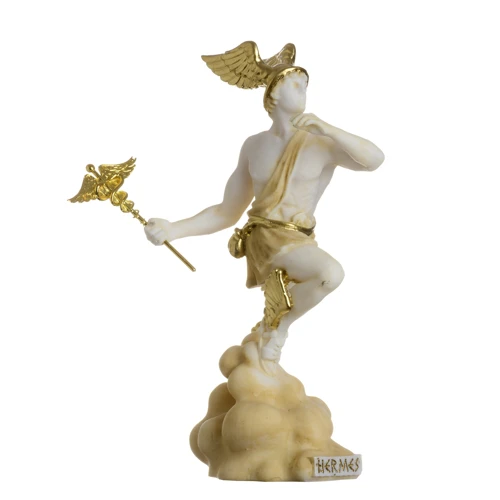
3. Mercury: Hermes, the Messenger of the Gods
In mythology, Mercury is associated with the Roman god Hermes, the swift-footed messenger of the gods. Hermes was known for his agility, intelligence, and eloquence, making him the perfect messenger to deliver divine messages between the gods and mortals. As the ruling planet of Gemini and Virgo, Mercury’s influence is seen in the traits associated with these zodiac signs.
3.1 The Roman God of Communication
Hermes, or Mercury in Roman mythology, was revered as the god of communication and commerce. He was often depicted wearing winged sandals and a winged cap, symbolizing his ability to travel swiftly across vast distances. Mercury was not only the messenger of the gods but also the god of travelers, merchants, and thieves. This dual nature reflects the multifaceted influence of the planet Mercury in astrology.
3.2 The Trickster and the Intellect
Mercury is known for its quick-witted and adaptable nature, reflecting the characteristics of Hermes in mythology. Hermes was not only a messenger but also a trickster, known for his cunning and ability to manipulate situations to his advantage. Similarly, those influenced by Mercury exhibit sharp intellect, clever communication skills, and a flair for adaptability. They excel in fields that require agility of the mind and the ability to process information rapidly.
The ruling planet Mercury governs communication, intelligence, and information processing. Its influence can be observed in individuals who possess excellent verbal and written communication skills, quick thinking, and a keen curiosity for knowledge. People with strong Mercury energy often excel in fields such as writing, journalism, teaching, and public speaking.
Mercury, associated with the Roman god Hermes, holds a significant place in astrology as the ruling planet of Gemini and Virgo. Its influence encompasses effective communication, intellectual agility, and adaptability. Understanding the mythology behind Mercury allows us to tap into its symbolic meaning and unlock its insights in the realm of astrology.
3.1 The Roman God of Communication
3.1 The Roman God of Communication
In Roman mythology, Mercury was the god associated with communication, knowledge, and intellect. Known as Hermes in Greek mythology, Mercury was seen as the messenger of the gods and the intermediary between the divine and mortal realms. This celestial being was swift-footed, symbolizing the speed and agility of communication. Mercury was often depicted wearing winged sandals and a winged helmet, emphasizing his ability to travel quickly and deliver messages with precision.
Mercury’s influence in astrology is closely tied to its namesake’s attributes. People born under the ruling of Mercury are believed to possess strong communication skills and intellectual prowess. They often excel in fields that require quick thinking, adaptability, and the ability to convey ideas effectively. These individuals possess a natural curiosity and a thirst for knowledge, constantly seeking new information and insights.
The planet Mercury governs not only communication but also transportation and technology. This association reflects the Roman god’s role as the guide of travelers and the patron of merchants. The influence of Mercury extends to areas such as writing, public speaking, teaching, and commerce, where effective communication plays a crucial role.
In astrology, the position of Mercury in a person’s birth chart determines how their communication style and intellectual abilities manifest. A strong placement of Mercury can indicate a clear and articulate speaker, someone who is persuasive and has a knack for words. It can also signify a keen analytical mind and a talent for problem-solving. On the other hand, a challenging Mercury placement can lead to issues with communication, such as difficulty expressing thoughts or a tendency to be overly critical in speech.
Understanding the mythological origins of the ruling planet Mercury provides us with valuable insights into its astrological significance. The god’s attributes and domains correlate with the qualities associated with Mercury in astrology, making it a pivotal planet in understanding aspects of communication, intellect, and information exchange in an individual’s chart. The ancient Romans recognized the power and influence of this deity, and today, we continue to explore and interpret the meaning of Mercury’s placement in our astrological readings.
3.2 The Trickster and the Intellect
In astrology, the planet Mercury is associated with the intellectual realm and often referred to as the “Trickster” due to its duality and influence over communication, thoughts, and ideas. In Roman mythology, Mercury was the god of communication and commerce, known for his cunning and quick-witted nature. This archetype translates into astrology, where Mercury represents the mind and our ability to think, analyze, and communicate effectively.
Mercury’s influence on intellect is evident in its association with the air signs Gemini and Virgo. Gemini, represented by the Twins, embodies Mercury’s duality and versatility, making individuals born under this sign excellent communicators, writers, and thinkers. They possess a natural curiosity and adaptability, often seeking intellectual stimulation and engaging in lively conversations.
Virgo, on the other hand, is an earth sign but is ruled by Mercury. This connection highlights the meticulous and analytical nature of Virgo individuals, who excel in organization, problem-solving, and research. They have a sharp eye for detail and a methodical approach to tasks, making them proficient in fields such as science, analysis, and information gathering.
Mercury’s influence extends beyond the realms of communication and intellect. This planet also governs areas related to travel, technology, and commerce. Its influence can be seen in professions such as journalism, writing, teaching, and sales, where effective communication and intellectual prowess play crucial roles.
However, it is important to note that Mercury’s trickster nature can manifest in challenges as well. Its influence over communication may lead to misunderstandings, miscommunication, or even deception if not channeled appropriately. Individuals may also experience a tendency towards overthinking or nervousness.
Nevertheless, understanding Mercury’s energy can help individuals harness its positive attributes, such as quick thinking, adaptability, and the ability to express ideas clearly. Building strong communication skills and embracing intellectual pursuits can bring out the best in individuals influenced by Mercury. Whether it is through engaging in stimulating conversations, pursuing higher education, or exploring various forms of artistic expression, the Trickster’s energy can be channeled into positive intellectual growth.
As we explore the mythology behind ruling planets in astrology, we gain a deeper understanding of their significance and the profound influence they hold over our lives. Mercury’s association with the Trickster and the Intellect showcases the complex and multifaceted nature of astrology and the rich symbolism embedded in its ancient origins.
4. Venus: Aphrodite, the Goddess of Love
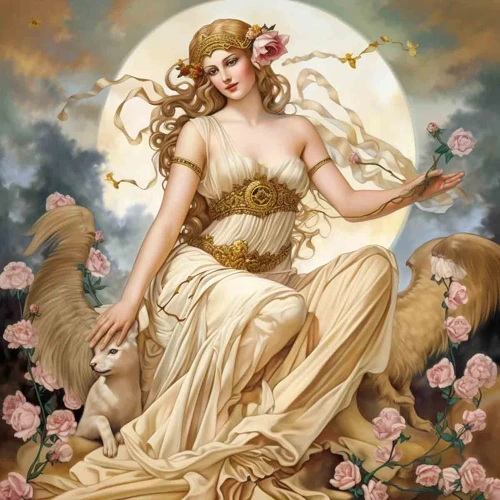
4. Venus: Aphrodite, the Goddess of Love
Venus, known as Aphrodite in Greek mythology, is the goddess of love and beauty. In astrology, Venus is associated with romance, relationships, pleasure, and aesthetics. Her influence can be seen in the way we form connections with others and appreciate the beauty in the world around us.
The Greek Goddess of Beauty and Desire
Aphrodite was considered the epitome of beauty and desire in Greek mythology. She was born from the sea foam, an enchanting image that symbolizes her connection to love and sensuality. Aphrodite was not only associated with physical beauty but also with the power of attraction and desire. Her irresistible charm and allure made her a central figure in many myths and stories. Artists and poets throughout the ages have been inspired by her beauty, making her a timeless symbol of love and passion.
The Influence of Venus in Relationships
In astrology, Venus governs our approach to relationships and our capacity to experience love and affection. It represents both the romantic and sensual aspects of our connections with others. Venus influences our desires, attractions, and how we express our affection. It governs our preferences, both in terms of physical beauty and emotional compatibility. Those with a strong Venus placement in their birth chart are often seen as charming, graceful, and emotionally attuned. They have a natural ability to form harmonious relationships and appreciate the pleasures of life.
Venus also plays a significant role in our sense of aesthetics and the way we appreciate art, music, and all forms of beauty. It guides our taste and preferences, influencing the way we dress, decorate our surroundings, and create art. The energy of Venus encourages us to seek harmony, balance, and pleasure in our surroundings.
Venus’s mythology as Aphrodite and its corresponding astrological influence highlight the importance of love, beauty, and connections in our lives. Understanding Venus in astrology allows us to navigate our relationships and embrace the beauty and pleasures that enrich our existence. So, whether you’re exploring the compatibility between Venus and other planets, or seeking inspiration for creative endeavors, the influence of Venus can guide you on a journey of love, beauty, and self-discovery.
[Internal link: Ophiuchus-Aquarius Compatibility](/connection-ophiuchus-aquarius-compatibility/)
4.1 The Greek Goddess of Beauty and Desire
Aphrodite, the Greek goddess of beauty and desire, represents the ruling planet Venus in astrology. Known for her unparalleled beauty and enchanting charm, Aphrodite holds immense influence over matters of love, relationships, and aesthetics. In Greek mythology, Aphrodite is said to have emerged from the sea foam, captivating all who laid eyes upon her with her radiant grace. She is often depicted with a golden girdle that bestows irresistible allure upon those who wear it.
As the goddess of beauty, Aphrodite’s energy brings forth a sense of harmony, pleasure, and aesthetic appreciation. She inspires creativity, encouraging individuals to express their unique sense of beauty and style. Under Aphrodite’s influence, there is a heightened awareness of physical attraction and a desire to connect with others on an intimate, romantic, or even playful level.
However, Aphrodite’s influence extends beyond mere physical beauty. She embodies the concept of divine love, encompassing compassion, empathy, and the ability to form deep emotional connections. Her presence encourages individuals to cultivate self-love and embrace their true desires.
In astrology, Venus’s influence is not limited to romantic relationships alone. It also governs values, partnerships, and the appreciation of art and aesthetics. Individuals with a strong Venus influence in their birth chart tend to value harmony, elegance, and balance. They have a keen appreciation for art, music, and the finer things in life. These individuals are often known for their charm, grace, and ability to form harmonious connections with others.
Understanding the mythology and symbolism behind Aphrodite, the goddess of beauty and desire, allows us to grasp the profound influence Venus holds in astrology. By honoring and embracing the Venusian energy within ourselves, we can cultivate love, beauty, and harmony in all aspects of our lives.
4.2 The Influence of Venus in Relationships
Venus, known as Aphrodite in Greek mythology, is often associated with love, beauty, and desire. In astrology, Venus represents the harmonious aspects of relationships and governs our affections and attractions. Its influence can provide valuable insights into our romantic connections and the way we express love.
When Venus is prominent in an individual’s birth chart, it signifies a magnetic charm and a desire for deep emotional connections. People with a strong Venus placement tend to be affectionate, romantic, and seek harmony in their relationships. They have a natural ability to express love and affection, often making them popular and desirable partners.
The influence of Venus can be particularly powerful when it comes to matters of the heart. It governs the way we approach love, our values regarding relationships, and our preferences in a partner. Venus influences not only romantic relationships but also our friendships and social interactions. Its presence in our birth chart can give clues about our taste in aesthetics, as well as our ability to appreciate and create beauty.
The position of Venus in relation to other planets in the birth chart can provide further insights into the dynamics of relationships. For example, a harmonious alignment between Venus and Mars can indicate a passionate and balanced connection between partners. On the other hand, a challenging aspect between Venus and Saturn may suggest obstacles or delays in forming lasting relationships.
It is important to note that while Venus represents the pleasurable aspects of love, it does not guarantee smooth sailing in relationships. It simply reflects our inherent qualities and preferences. It is within our power to cultivate and nurture healthy relationships, regardless of our Venus placement.
Understanding the influence of Venus can help individuals navigate the complexities of relationships and make informed choices. Whether you are seeking love, strengthening an existing partnership, or simply exploring the dynamics of human connection, delving into the mythology and symbolism of Venus offers a deeper understanding of the intricate dance of love and desire.
Ophiuchus Capricorn compatibility
5. Mars: Ares, the God of War
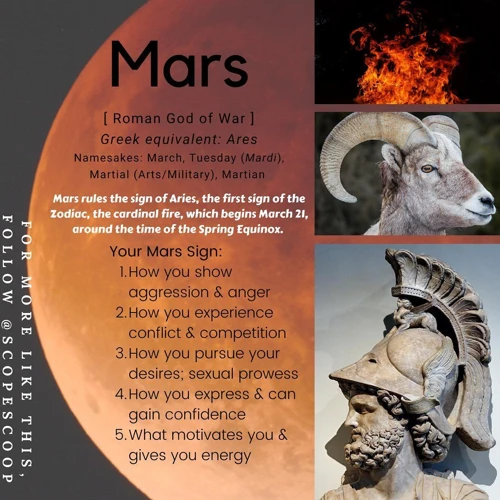
5. Mars: Ares, the God of War
Mars, the fourth planet from the sun and named after the Roman god of war, holds a prominent place in astrology. Just as Ares was known for his warlike nature, Mars is associated with traits such as passion, ambition, and assertiveness. The mythology surrounding Ares provides valuable insights into the astrological significance of Mars.
1. The Bellicose Nature of the Roman God
In Roman mythology, Ares, known as Mars in Latin, was the son of Jupiter and Juno. He was depicted as a fierce and impulsive god, always eager for battle. Ares was associated with the violence and chaos of war, often portrayed wielding a spear and shield. This aggressive persona is reflected in the astrological interpretation of Mars, where it is linked to assertiveness, confrontation, and the pursuit of personal desires.
2. The Drive and Ambition of Mars
Mars is considered the planet of energy and drive. Just as Ares fueled the fires of battle, Mars is associated with a strong desire to achieve goals and overcome obstacles. People influenced by Mars in their astrological charts are often ambitious, determined, and willing to take risks to attain success. The planet’s energy also manifests in physical activities and athletic pursuits, as Mars governs our physical strength and endurance.
3. Balancing Aggression and Passion
While Mars is often associated with aggression and conflict, it also symbolizes passion and desire. Ares was not only the god of war but also a lover, known for his passionate affairs. Similarly, Mars in astrology represents our desires and how we express our sexual and romantic energies. This planet influences our approach to relationships and the pursuit of pleasure. It reminds us to find a balance between assertiveness and nurturing connections with others.
4. Handling Mars’ Intensity
The fiery energy of Mars can sometimes be overwhelming if not channeled properly. Ares was notorious for his impulsive nature and the destructive consequences of his actions. Similarly, individuals influenced strongly by Mars may need to find healthy outlets for their intense emotions and frustrations. Physical exercise, active pursuits, and engaging in creative endeavors can help channel Mars’ energy constructively and avoid potential conflicts.
Embracing the influence of Mars allows us to tap into our inner strength, ambition, and passion. By understanding the mythology of Ares and the meaning behind this ruling planet, we can navigate our lives with a greater understanding of our desires and how to harness our energy effectively. Mars serves as a reminder that with careful balance and mindful action, we can embrace our inner warrior and conquer life’s challenges.
5.1 The Bellicose Nature of the Roman God
Mars, known as Ares in Roman mythology, is the god of war and embodies the bellicose nature of conflict and aggression. In Roman culture, Mars held a prominent position as one of the most revered and feared deities. The Romans associated Mars with bravery, strength, and military prowess, considering him the guardian of their empire. He was depicted as a strong and muscular god, often seen donning armor and carrying a spear, ready for battle.
Mars’ association with war and violence extends beyond physical combat. In astrology, Mars represents not just the battlefield but also our individual drive, ambition, and assertiveness. Just as Mars was revered by the Romans for his ability to lead armies to victory, the planet Mars holds influence over our own desire for success and achievement.
Those influenced by Mars in their astrological charts are often characterized by their competitive spirit and relentless pursuit of their goals. They possess a fiery energy that propels them to take action, often thriving in high-pressure situations. Mars’ influence can manifest as a passionate drive and a willingness to take risks in order to achieve their objectives.
However, it is important to note that Mars’ influence is not solely centered around violence and aggression. Like any other planetary energy, Mars has both positive and negative expressions. While it can signify conflict and hostility, it can also represent courage, determination, and leadership qualities.
Understanding the influence of Mars in astrology allows us to better navigate and utilize its energy in our lives. Whether it inspires us to pursue our ambitions fearlessly or teaches us to channel our aggression constructively, Mars reminds us of the power and strength within us to overcome challenges and achieve our goals.
Mars, the Roman god of war, embodies the bellicose nature of conflict and aggression. Astrologically, Mars represents our drive, ambition, and assertiveness. While it is associated with war and violence, it also inspires courage and determination. Embracing the energy of Mars allows us to tap into our own inner warriors and find the strength to conquer obstacles on our path to success.
5.2 The Drive and Ambition of Mars
Mars, known as Ares in Roman mythology, is associated with action, energy, and confidence. Just like the fierce and warlike nature of the Roman god, Mars represents the same qualities in astrology. This planet ignites a drive within individuals, pushing them to act and pursue their goals with determination. Those influenced by Mars tend to possess a strong sense of ambition and a desire to conquer challenges.
Mars is often associated with courage, assertiveness, and the ability to take risks. Individuals with a prominent Mars in their birth chart are often driven to excel in competitive environments. They thrive on challenges and are not afraid to assert themselves to achieve their ambitions. The inherent competitive nature of Mars makes individuals influenced by this planet strive for victory and success.
The influence of Mars goes beyond personal drive and ambition. It also symbolizes an individual’s physical energy and stamina. Those strongly influenced by Mars tend to have a robust physical presence and can possess incredible endurance. They have the potential to excel in physically demanding activities and sports that require strength and agility.
However, the assertive and sometimes aggressive nature of Mars needs to be balanced with self-awareness and control. Unbridled aggression can lead to conflicts and impulsive actions. It is important for individuals influenced by Mars to channel their energy in constructive ways and develop discipline to avoid unnecessary confrontations.
In relationships, Mars plays a significant role in passion and desire. It fuels the flame of passion and intensity between individuals, adding a spark of excitement and energy. Mars represents the physical and sexual aspects of a relationship, bringing vitality and attraction to romantic connections.
Interested in exploring more about astrology and its influence? Check out our writing prompts for Ophiuchus sign, the 13th zodiac sign that provides unique insights into personality traits and life paths.
Mars, with its drive and ambition, encourages individuals to pursue their goals fearlessly and to seize opportunities with conviction. Its influence prompts action, motivating individuals to overcome obstacles and reach new heights. Understanding the mythology behind Mars allows us to harness its power and embrace the spirit of determination and courage it represents.
Conclusion
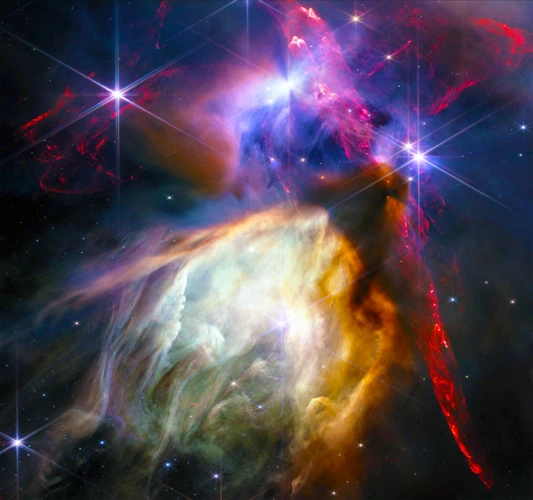
In conclusion, exploring the mythology behind the ruling planets in astrology unveils a rich tapestry of ancient beliefs and celestial influences. From the ancient Egyptians who saw the planets as manifestations of their gods and goddesses, to the Greeks who associated each planet with divine beings, and the Romans who adapted and expanded upon these concepts, astrology has deep historical roots. The study of ruling planets allows us to tap into the symbolism and energy represented by these celestial bodies, offering insights into our personalities, relationships, and life paths. Whether it’s the radiant power of the Sun, the emotional sway of the Moon, the intellect and communication of Mercury, the love and desire of Venus, or the drive and ambition of Mars, each ruling planet brings forth unique qualities and influences. By understanding the mythology and symbolism behind these ruling planets, we can gain a deeper appreciation for astrology and its ability to guide us on our cosmic journey. So, let us embrace the ancient origins and mythological tales surrounding the ruling planets, and continue to explore the fascinating world of astrology with awe and wonder.
Frequently Asked Questions
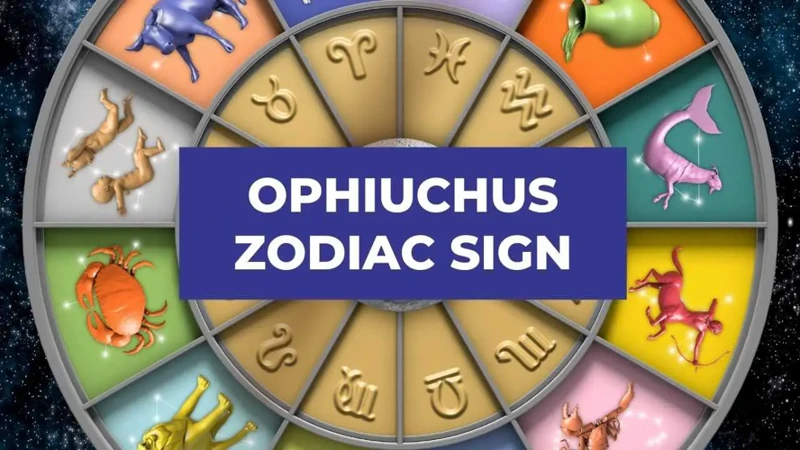
1. How did ancient civilizations view the stars and planets?
Ancient civilizations viewed the stars and planets as divine entities, associating them with their pantheon of gods and goddesses. They believed that these celestial bodies held significant influence over human life and events on Earth.
2. What is the significance of the Nile flood in Egyptian astrology?
The annual rising of the star Sirius, known as the “Dog Star,” coincided with the flooding of the Nile River, which was considered vital for the Egyptian civilization. This connection between celestial events and the natural world played a key role in their astrological interpretations.
3. How did the ancient Greeks contribute to astrology?
The ancient Greeks attributed distinct personalities and influences to the planets, associating them with their pantheon of gods and goddesses. They also introduced the concept of the zodiac, a circle of twelve constellations linked to personality traits and life events.
4. Who were the ruling planets in Roman astrology?
In Roman astrology, ruling planets were assigned to each zodiac sign. For example, Mars was associated with Aries, Mercury with Gemini and Virgo, and Venus with Taurus and Libra. These ruling planets were believed to have dominant influences over certain personality traits and characteristics of individuals born under those signs.
5. How does astrology continue to influence modern society?
Astrology continues to intrigue and inspire people, offering insights into personality traits, compatibility, and life paths. Many individuals turn to astrology for guidance and self-reflection, using it as a tool for personal growth and understanding.
6. Can ruling planets change over time?
The concept of ruling planets can vary depending on astrological traditions and interpretations. While some believe that ruling planets remain fixed, others consider the influence of outer planets and newly discovered celestial bodies in astrology, leading to potential variations in ruling planet assignments.
7. Are ruling planets the only indicators of personality in astrology?
No, ruling planets are one of many factors considered in astrology. Other elements such as the ascendant or rising sign, moon sign, and aspects between planets also play a significant role in determining an individual’s unique characteristics and life experiences.
8. How does astrology tie into mythology?
Astrology draws heavily from mythology, as each planet is associated with a specific god or goddess. These mythological connections provide symbolic meaning and depth to astrological interpretations, allowing for a greater understanding of the energies and influences at play.
9. Can ruling planets affect relationships?
Yes, ruling planets can impact relationships by influencing the compatibility and dynamics between individuals. For example, two people with Venus as their ruling planet may have a deep understanding of love and harmony, while two individuals with Mars as their ruling planet may exhibit strong passion and assertiveness in their relationship.
10. Is astrology a science or a belief system?
Astrology is considered a belief system rather than a science. Its interpretations and predictions are based on astrological principles, symbolism, and ancient wisdom, rather than empirical evidence. However, astrology continues to be a subject of fascination and study for many, blending aspects of spirituality, psychology, and personal growth.
References
Frequently Asked Questions

1. What is astrology?
Astrology is the study of the movements and positions of celestial bodies, such as planets and stars, and their influence on human behavior and the natural world.
2. How do ruling planets work in astrology?
Ruling planets in astrology are associated with specific zodiac signs and are believed to exert a significant influence on the traits and characteristics of individuals born under those signs.
3. What is the significance of the Sun as a ruling planet?
The Sun is considered the ruling planet of Leo, symbolizing power, vitality, and creativity. It represents the divine ruler and is associated with leadership qualities and a strong sense of self.
4. Who is Selene in Greek mythology and how does she relate to ruling planets?
Selene is the Greek goddess of the Moon and is associated with emotions, intuition, and femininity. She represents the ruling planet of Cancer and is believed to influence the emotional nature of those born under this sign.
5. What is the role of Hermes in astrology?
Hermes, the Greek god of communication, is associated with the ruling planet Mercury. Those influenced by Mercury are believed to possess quick thinking, great communication skills, and a knack for problem-solving.
6. Who is Aphrodite and how does she relate to ruling planets?
Aphrodite is the Greek goddess of love and beauty and represents the ruling planet Venus. Individuals influenced by Venus are believed to have a magnetic personality, a love for the arts, and a strong desire for romantic partnerships.
7. How does Mars relate to ruling planets?
Mars, the Roman god of war, is associated with the ruling planet Mars. Those influenced by this planet are believed to possess determination, ambition, and a strong drive to achieve their goals.
8. How do ruling planets affect relationships?
Ruling planets, such as Venus, can influence the way individuals approach romantic relationships. For example, Venus’s influence may manifest as a desire for harmonious connections, passionate pursuits, and a strong sense of aesthetics.
9. Can ruling planets influence our emotions?
Absolutely! The ruling planet of the Moon, for instance, can influence our emotional nature and intuition. Individuals influenced by the Moon may experience heightened sensitivity and deep emotional connections.
10. Are ruling planets in astrology based on mythology or scientific evidence?
Ruling planets in astrology are primarily based on ancient mythology and symbolic interpretations. While there is no scientific evidence to support the direct influence of celestial bodies on human behavior, astrology remains a fascinating and popular subject of study.
